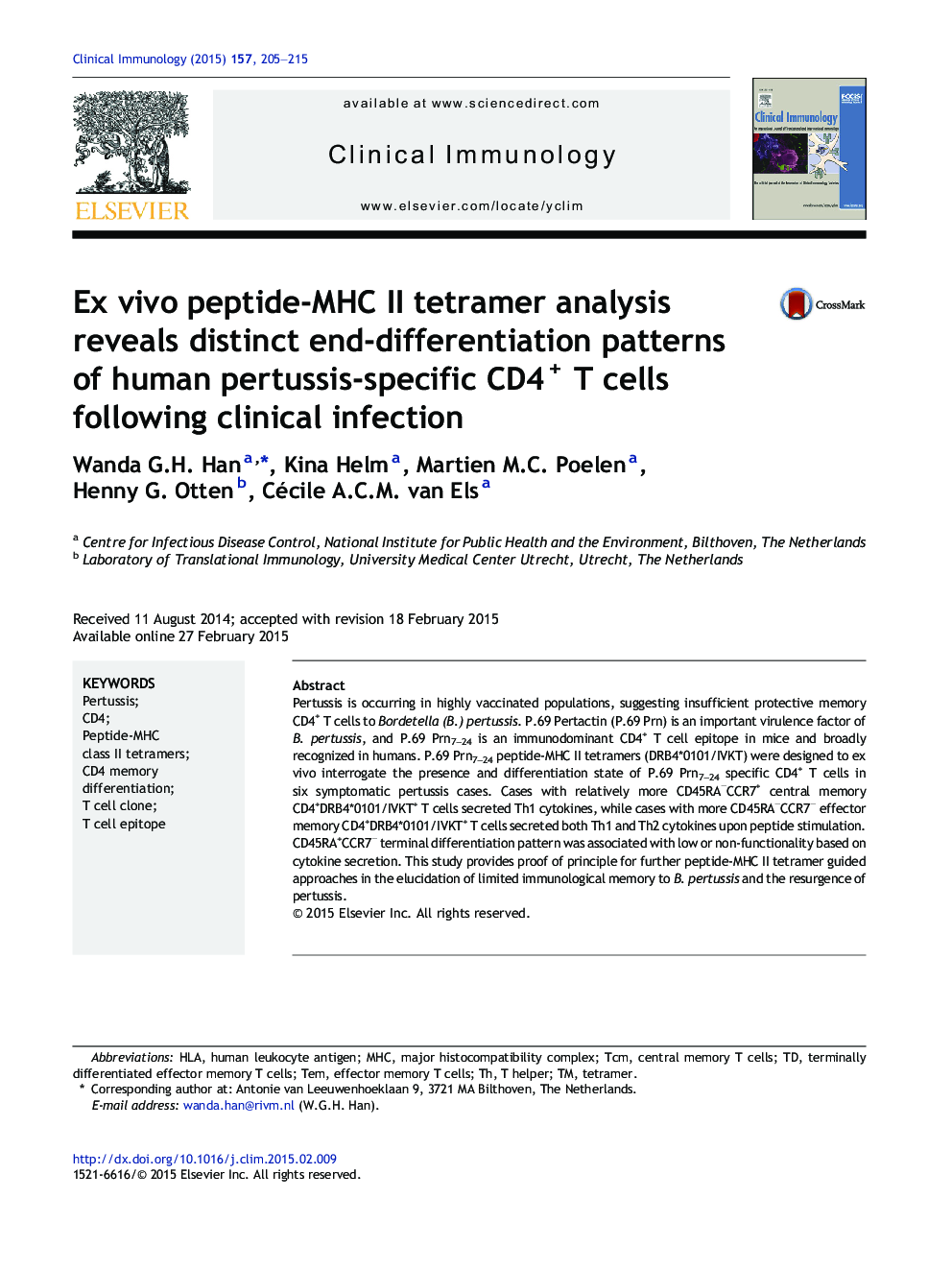| Article ID | Journal | Published Year | Pages | File Type |
|---|---|---|---|---|
| 6087514 | Clinical Immunology | 2015 | 11 Pages |
â¢First time analysis of human pertussis-specific CD4+ T cells by tetramer technologyâ¢Frequency of pertussis-epitope specific CD4+ T cells ranged from 0.01 to 0.1%â¢Distinct memory phenotype patterns of pertussis-specific CD4+ T cells in patientsâ¢Memory differentiation stage correlates with cytokine secretion capacities
Pertussis is occurring in highly vaccinated populations, suggesting insufficient protective memory CD4+ T cells to Bordetella (B.) pertussis. P.69 Pertactin (P.69 Prn) is an important virulence factor of B. pertussis, and P.69 Prn7-24 is an immunodominant CD4+ T cell epitope in mice and broadly recognized in humans. P.69 Prn7-24 peptide-MHC II tetramers (DRB4*0101/IVKT) were designed to ex vivo interrogate the presence and differentiation state of P.69 Prn7-24 specific CD4+ T cells in six symptomatic pertussis cases. Cases with relatively more CD45RAâCCR7+ central memory CD4+DRB4*0101/IVKT+ T cells secreted Th1 cytokines, while cases with more CD45RAâCCR7â effector memory CD4+DRB4*0101/IVKT+ T cells secreted both Th1 and Th2 cytokines upon peptide stimulation. CD45RA+CCR7â terminal differentiation pattern was associated with low or non-functionality based on cytokine secretion. This study provides proof of principle for further peptide-MHC II tetramer guided approaches in the elucidation of limited immunological memory to B. pertussis and the resurgence of pertussis.
